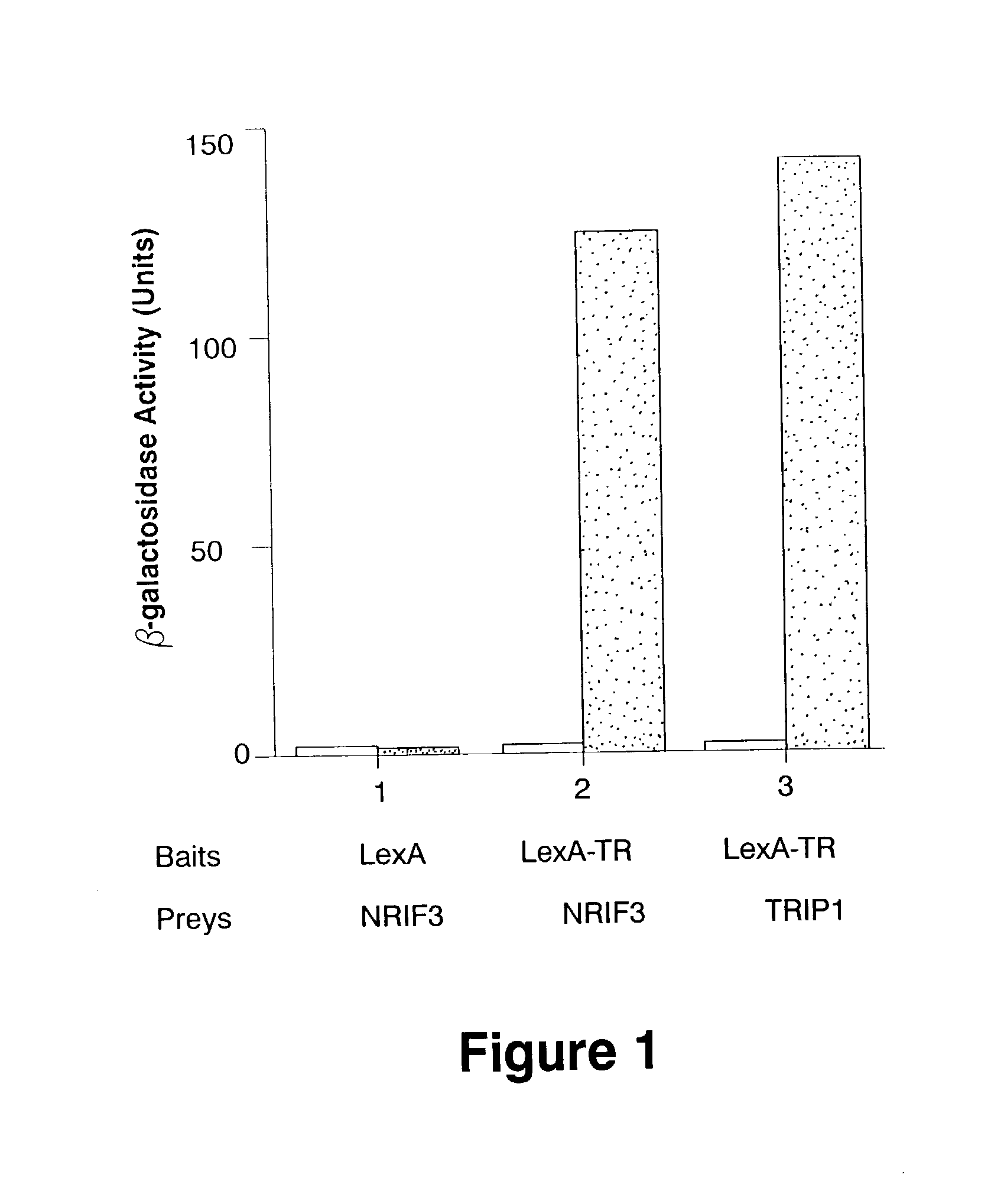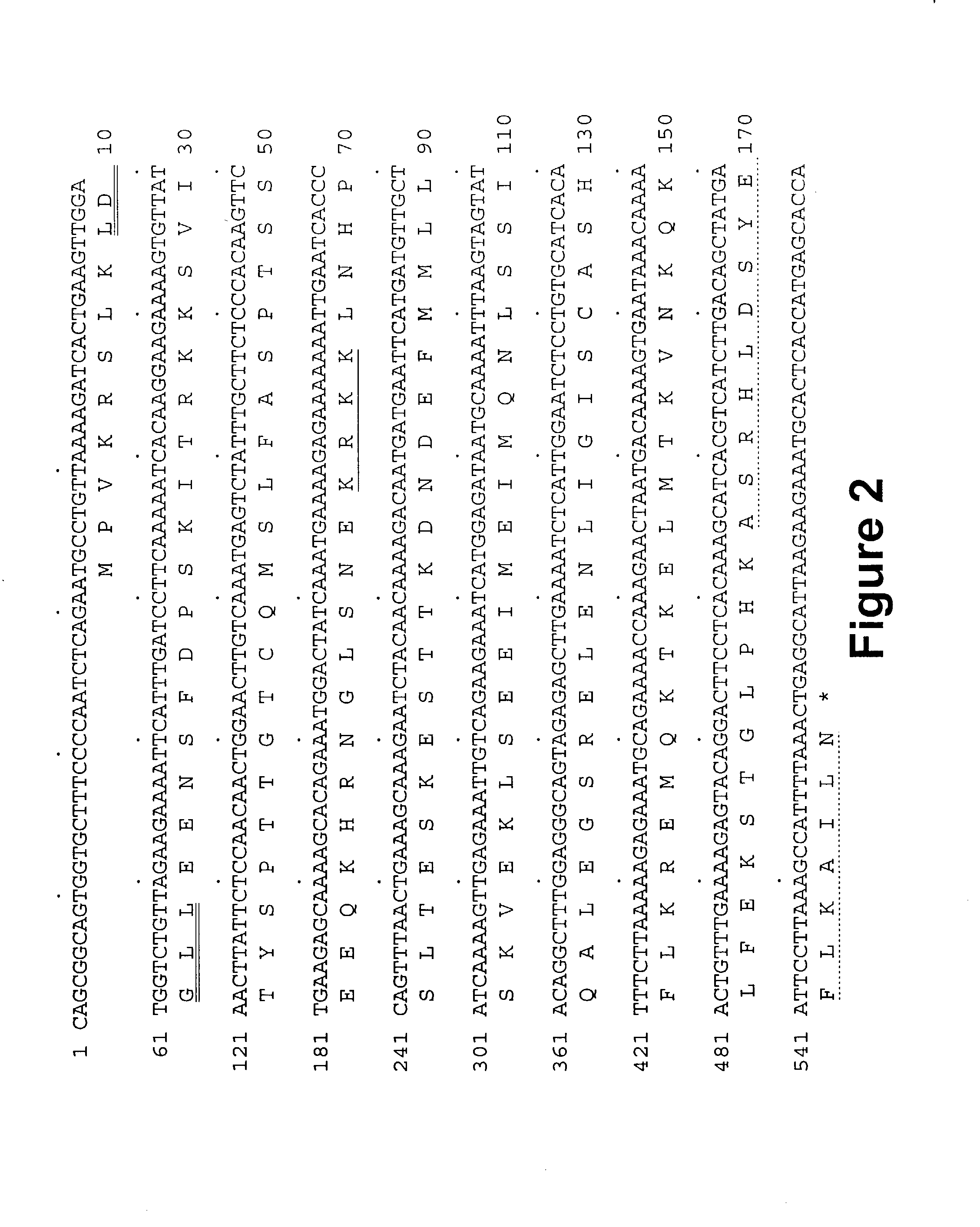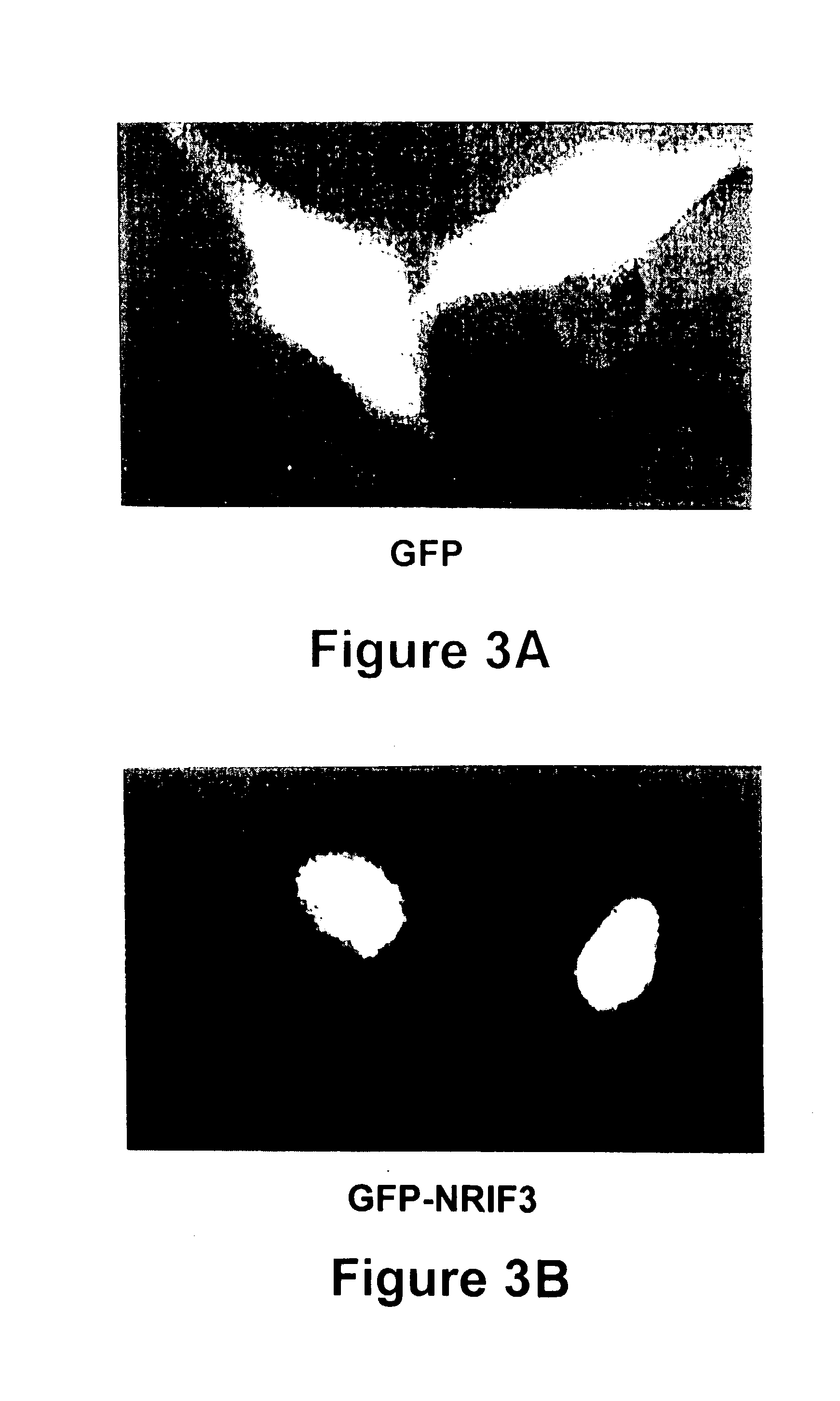NRIF3, a novel co-activator for nuclear hormone receptors
a nuclear hormone receptor and co-activator technology, applied in the field of new nuclear hormone receptor co-activators, can solve the problem that the selective regulation of target genes containing such elements by specific receptors is a very important but poorly understood problem
- Summary
- Abstract
- Description
- Claims
- Application Information
AI Technical Summary
Problems solved by technology
Method used
Image
Examples
example 1
Identification and Characterization of NRIF3
[0125] To further our understanding of the molecular events underlying receptor-activated transcription, we sought to identify additional co-activators using a yeast two-hybrid screening strategy (29). This Example describes the isolation of a novel co-activator for nuclear receptors, designated as NRIF3. Fluorescence microscopy indicates that NRIF3 is a nuclear protein. The yeast two-hybrid and in vitro binding assays revealed that NRIF3 interacts specifically with TR and RXR in a ligand-dependent fashion but does not interact with other examined nuclear receptors. Transfection studies indicate that NRIF3 selectively potentiates TR- and RXR-mediated transactivation in vivo. NRIF3 encodes a small protein of 177 amino acids and other than an N-terminal LxxLL (SEQ ID NO:1) motif shares no homology with known co-activators. The combination of computer modeling, domain and mutagenesis analyses suggest that NRIF3 interacts with nuclear recepto...
example 2
Specific Antibodies Against NRIF3
[0165] Since alternative splicing of the NRIF3 gene generates multiple related mRNAs of similar sizes, it has been difficult to specifically identify the tissue / cell expression pattern of NRIF3 by Northern blot. To facilitate the detection of NRIF3, we have developed specific antibodies against NRIF3 protein. NRIF3 contains a unique C-terminal domain (amino acids 162-177, referred as NCD) that is not present in other alternatively-spliced products (known as endonexin short and long forms). Therefore, a polypeptide corresponding to the NCD was synthesized, linked to a carrier and used to immunize rabbits (Alpha Diagnostic International, San Antonio, Tex.). To examine the specificity of the polyclonal antibodies obtained from the rabbits, known amounts of purified recombinant NRIF3 as well as endonexin short and long forms were used for a Western blot analysis. The result of this analysis shows that less than 1 ng of the NRIF3 protein can be easily de...
PUM
 Login to View More
Login to View More Abstract
Description
Claims
Application Information
 Login to View More
Login to View More - R&D
- Intellectual Property
- Life Sciences
- Materials
- Tech Scout
- Unparalleled Data Quality
- Higher Quality Content
- 60% Fewer Hallucinations
Browse by: Latest US Patents, China's latest patents, Technical Efficacy Thesaurus, Application Domain, Technology Topic, Popular Technical Reports.
© 2025 PatSnap. All rights reserved.Legal|Privacy policy|Modern Slavery Act Transparency Statement|Sitemap|About US| Contact US: help@patsnap.com



